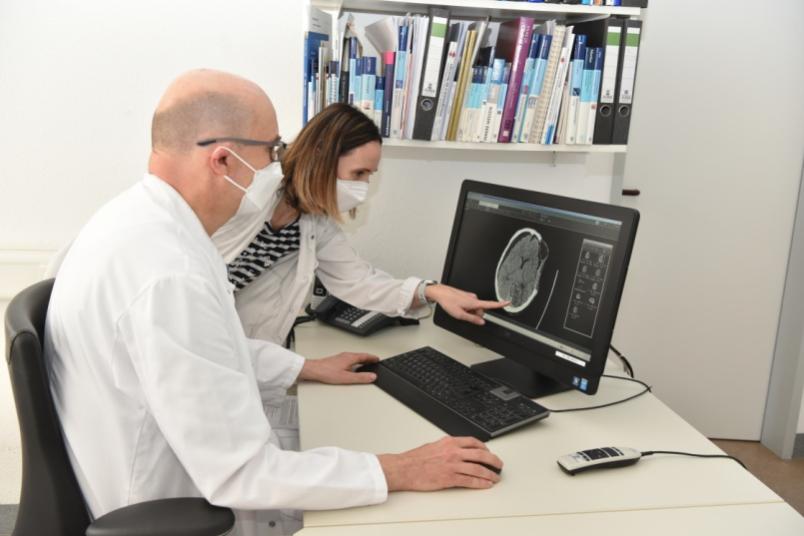
Neurology
More older people suffer a traumatic brain injury due to falls
While in the past it was mainly car accident victims, today it is older people who come to hospital with head injuries after falls.
About 270,000 people suffer a traumatic brain injury in Germany every year. The over-65s are increasingly affected. This is the result of a study conducted by researchers from the BG Kliniken chain of hospitals under the direction of the Neurological Clinic of the Ruhr Universität Bochum (RUB) of the BG University Hospital Bergmannsheil. Falls are often the cause. The researchers advise more preventative measures, such as removing tripping hazards in the home or training the use of walking aids. The study is the first on epidemiology and causes of traumatic brain injury in over 20 years. The research team reports in the journal BMJ Open of 4 June 2021.
Falling and cycling without a helmet are common causes
From a minor fall on a bicycle to a serious road traffic accident: The causes of a traumatic brain injury are manifold. About 90 percent of the approximately 270,000 cases per year are classified as mild, ten percent as moderate or severe. Current findings show that traumatic brain injury is increasing in the age group of over-65s. The research team at BG Kliniken in Bochum, Hamburg, Berlin, Halle, Frankfurt, Ludwigshafen and Murnau found that there has been a shift in the age group most frequently affected and that there is a discernible correlation between the severity of a traumatic brain injury, age and cause.
The study shows that the most frequent causes of traumatic brain injury are falls and no longer road traffic accidents. There has also been a shift with regard to road traffic accidents: The largest group here is no longer car occupants, but cyclists without helmets.
"We are registering a clear shift in the majority of the affected age group towards the older generation. This phenomenon can be observed in almost all industrialised countries," explains Professor Peter Schwenkreis, senior physician at the Neurological Clinic at Bergmannsheil. A link with the age of those affected is also discernible. Falls are the most common cause, especially among older women and men. "Older people are significantly more prone to falls and thus suffer a traumatic brain injury more quickly than other age groups. In addition, the severity of the injury is higher in these patients", Schwenkreis specifies. "This also explains why we are seeing an increase in deaths caused by such an injury in this age group."
Study with over 3,500 participants
For the study, a neuroscientific research group of the BG Kliniken observed and evaluated the development, treatment and impact for patients with traumatic brain injury. A total of 3,514 patients were included in the study. All of them were treated at one of the participating BG Kliniken between 1 October 2014 and 30 September 2015. The prerequisite was that the medical care had taken place within the first 24 hours after suffering the traumatic brain injury.
The results were collected using two different methods: Evaluation of documentation forms from initial care to rehabilitation on the one hand, and standardised telephone interviews with the affected persons three and twelve months after they suffered the trauma on the other hand. A study of this magnitude on the epidemiology of traumatic brain injury has not been published in Germany since 2000/2001.
Simple measures can have a big impact
As moderate to severe traumatic brain injuries occur more frequently in older people, the research group identifies a specific need for more prevention work here. "Training measures for safe walking, training in the use of walking aids or redesigning the home by removing tripping hazards are conceivable. As simple as these measures sound, they can prevent serious injuries", says Peter Schwenkreis. "The advances in passenger protection in cars have had a clearly demonstrable effect", he explains further. “Now it is important to implement the protection of pedestrians and cyclists as part of the emerging shift in mobility.”